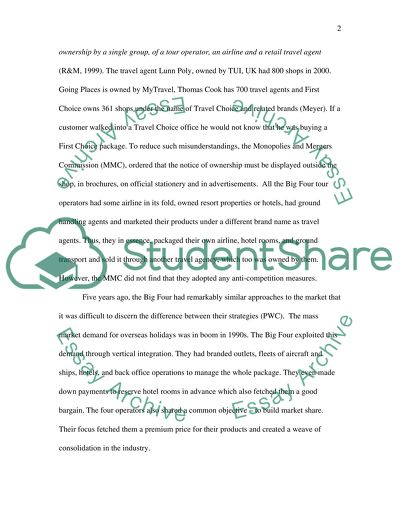Cite this document
(Cartel of 'Big Four' Tour Operators in UK Essay, n.d.)
Cartel of 'Big Four' Tour Operators in UK Essay. https://studentshare.org/tourism/1538443-evaluate-the-way-in-which-big-four-tour-operators-tui-mytravel-first-choice-and-thomas-cook-have-established-a-cartel-within-the-package-holiday-market-i
Cartel of 'Big Four' Tour Operators in UK Essay. https://studentshare.org/tourism/1538443-evaluate-the-way-in-which-big-four-tour-operators-tui-mytravel-first-choice-and-thomas-cook-have-established-a-cartel-within-the-package-holiday-market-i
(Cartel of 'Big Four' Tour Operators in UK Essay)
Cartel of 'Big Four' Tour Operators in UK Essay. https://studentshare.org/tourism/1538443-evaluate-the-way-in-which-big-four-tour-operators-tui-mytravel-first-choice-and-thomas-cook-have-established-a-cartel-within-the-package-holiday-market-i.
Cartel of 'Big Four' Tour Operators in UK Essay. https://studentshare.org/tourism/1538443-evaluate-the-way-in-which-big-four-tour-operators-tui-mytravel-first-choice-and-thomas-cook-have-established-a-cartel-within-the-package-holiday-market-i.
“Cartel of 'Big Four' Tour Operators in UK Essay”. https://studentshare.org/tourism/1538443-evaluate-the-way-in-which-big-four-tour-operators-tui-mytravel-first-choice-and-thomas-cook-have-established-a-cartel-within-the-package-holiday-market-i.


